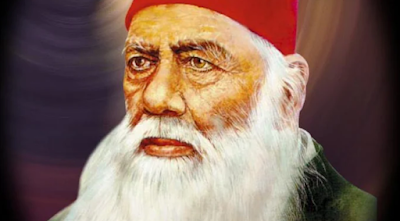Sir Syed Ahmed Khan
**Sir Syed Ahmed Khan: A Visionary Reformer and Educationist**
Sir Syed Ahmed Khan stands as a towering figure in the history of the Indian subcontinent, renowned for his pivotal role in the socio-political and educational reform of the 19th century. His legacy is marked by a profound commitment to the advancement of Muslim communities and the broader Indian society, driven by his vision of modern education and socio-political reform.
**Early Life and Education**
Born on October 17, 1817, in Delhi, Sir Syed Ahmed Khan emerged from a privileged background. His early education was grounded in traditional Islamic studies, but he also demonstrated an aptitude for learning beyond the conventional curriculum. This diverse educational foundation laid the groundwork for his future reformative endeavors.
**Reformist Vision**
The backdrop of Sir Syed’s reformist efforts was the socio-political upheaval following the Indian Rebellion of 1857. The rebellion had profound repercussions for Indian Muslims, who faced widespread marginalization and political disempowerment. Sir Syed, acutely aware of the precarious position of his community, championed the need for reform and modernization as a path to empowerment and progress.
**Educational Reforms**
Central to Sir Syed Ahmed Khan’s vision was the promotion of modern education. He founded the Scientific Society of Aligarh in 1864, aiming to introduce the Muslim community to contemporary scientific knowledge and rational thinking. His most significant educational initiative was the establishment of the Muhammadan Anglo-Oriental College in Aligarh in 1875, which later evolved into the Aligarh Muslim University (AMU). This institution became a beacon of modern education for Muslims, blending traditional Islamic studies with contemporary Western learning.
Sir Syed’s educational philosophy was grounded in the belief that acquiring scientific knowledge and embracing modernity were essential for the socio-economic upliftment of Muslims. He advocated for a curriculum that included not only religious education but also scientific and technical subjects, arguing that this would help bridge the gap between traditional Islamic education and the demands of the modern world.
**Socio-Political Contributions**
In addition to his educational reforms, Sir Syed Ahmed Khan made significant contributions to socio-political discourse. He emphasized the importance of socio-political engagement and advocated for the rights and representation of Muslims within the colonial framework. His efforts were directed towards fostering a sense of unity and political consciousness among Muslims, which eventually contributed to the broader political movements of the time.
**Literary Contributions**
Sir Syed was also a prolific writer and thinker. His literary works, including "Asar-us-Sanadid" and "Aligarh Institute Gazette," were instrumental in spreading his reformist ideas and educating the public about modern science and rational thought. His writings reflected his commitment to intellectual inquiry and his belief in the power of education as a tool for social change.
**Legacy**
Sir Syed Ahmed Khan’s impact is enduring. His emphasis on modern education and his efforts to uplift the Muslim community laid the foundation for future generations of leaders and thinkers. His legacy is celebrated for its vision and dedication to progress, embodying a spirit of reform that continues to inspire educational and socio-political movements in South Asia.
In conclusion, Sir Syed Ahmed Khan's life and work represent a significant chapter in the history of social reform and education in the Indian subcontinent. His visionary approach to education, his advocacy for socio-political engagement, and his literary contributions mark him as a pioneering reformer whose influence extends far beyond his own time. His legacy remains a testament to the transformative power of education and reform in shaping societies.



Comments
Post a Comment